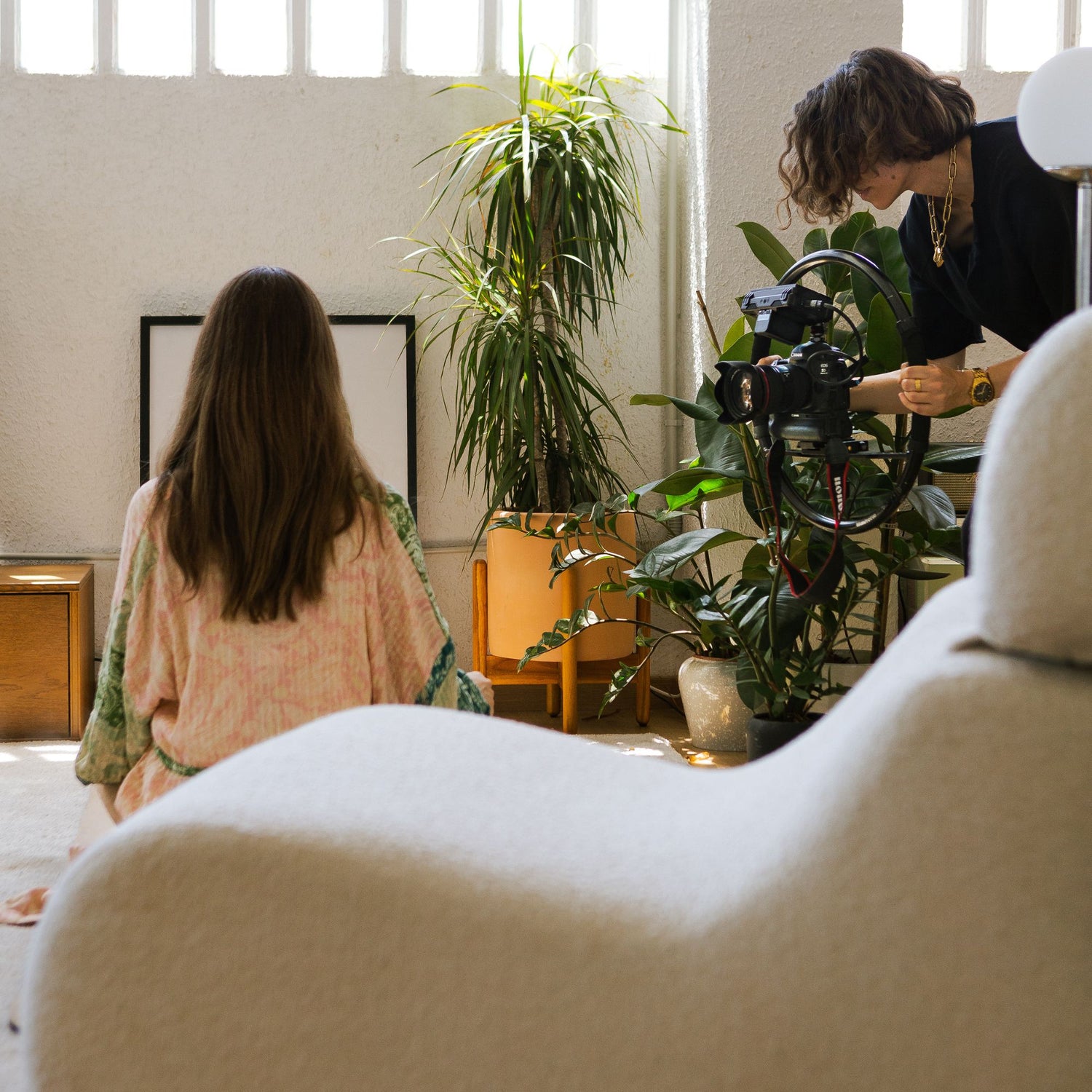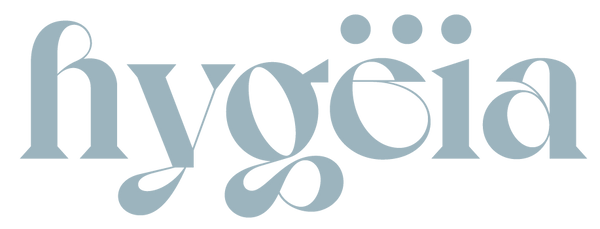“Don’t open Pandora’s box, you don’t know what you might find…..”
Around 600 BC in Athens, Greece, one of five daughters was born to the famous Asclepius, god of medicine; her name was hygëia, the ancient Greek goddess of health, cleanliness & sanitation. She is distinctly remembered for guiding her community to inner peace as the giver of mental health through rituals that cleanse the mind, body & soul. hygëia was vibrant and is said to have radiated femininity, health & beauty in every way. She was often seen wearing light coloured silk robes with a serpent wrapped around her arm as the Greeks regarded snakes as sacred, using them in healing rituals. The venom of snakes was considered to be remedial and their skin-shedding was viewed as a symbol of rebirth and renewal. In addition to her serpent that followed her everywhere, she carried a small bowl in her hand supposedly filled with mother nature’s finest minerals for natural healing purposes. Statues of hygëia were erected in all major healing centers and the worship of hygëia as an independent goddess started to spread around 400BC after the first appearance of the black plague.
As legend has it, prior to the birth of hygëia, Pandora was the first mortal woman to arrive on earth and would go on to change the course of history. She received many extraordinary gifts from various important gods to help guide her; the capacity of deep emotion was bestowed upon her by Ethina, from Hermes she was given mastery over language and most treasured of all, from the infamous and unpredictable olympian god Zues, a gift box, known today as Pandora’s box.
Upon handing over the box, which came in the form of a beautifully handcrafted vase, glazed with black-and-white geometrical designs and a ceramic lid fastened with a leather harness; Pandora was specifically told not to open it under any circumstances. Before long she became obsessed with its contents, even claiming she could hear voices coming from within it calling her name and eventually, despite great inner struggles, curiosity overcame her. Upon opening the jar, The Nosoi, three personified spirits of plague, sickness and disease, along with all other evil ideas that torment mankind today was released in a cloud of smoke.
Only Elpis, the spirit of hope remained inside. The Nosoi, in their basic form of glimmering smoke, resembled ghoulish corpses with yellow eyes and were dressed in black clothing. Any sort of attack simply passed through them as they drifted through the night air infecting people as they inhaled their vapors. The evil spirits were hellbent on spreading their misery throughout ancient Greece around this time, persistent in their destruction of Athens using disease related illness as their primary source. The Black Plague.
On a known day of reckoning around 400BC, soon after the black plague of Athens had begun to devastate the city state, resurfacing twice over a four year period, an epic showdown took place between two forces; good vs bad, light vs dark, teachings of a goddess vs evil spirits destined to torment. As a heavy storm raged down on Athens, huge bolts of thunder struck the flooded streets causing the water to boil and smoke to arise from the floor. Some civilians of Athens desperately ran for their lives to escape the city, jumping to avoid the hot surfaces. The storm was so strong the people had feared their homes were in danger of collapsing and many who remained were dying in great numbers due to diseases relating to the black plague. Many felt their homes had been contaminated and as more people ran for safety, others followed, ensuring that by nightfall the population of Athens had succumbed to a crazed frenzy, a state of complete chaos. Those who fled their homes ran as fast as they could, but in no particular direction and to no avail as unfortunately, many lost their lives. The oracles of hygëia had always encouraged her people to stay put and not to panic. They told the people that despite any ensuing chaos, inner peace and prevention of sickness was achievable by deepening the relationship with oneself, ones home, and the Earth. hygëia had reassured them that as long as their homes were cleansed using natural remedies, the rituals of hygëia, that they would be prevented of illness from the black plague and that they would be protected from the storm too by channeling higher energy fields untouchable by outside forces and distractions.
As The Nosoi eventually retreated, Ancient Athens slowly began to recover in the wake of the black plague. hygëia was largely credited with saving Athens from total destruction and her importance rose as protector of physical, mental & spiritual health. People prayed to hygëia to prevent future illness and followed her rituals with great enthusiasm. Centuries on, the cult of hygëia has largely remained underground and has somewhat disappeared. Maybe she has been awaiting the perfect time to return. The bowl of hygëia, along with the famous snake symbol is now used to represent medicine around the world to this day.

Today we face a different kind of plague. The modern world as we know it is changing faster than ever before with constant distractions and faceless algorithms designed to steal our attention away from us. Like a thief in the night, a movement led by technology companies designed to lure us into sleep induced comas by day. In a strange twist of fate since the historical rituals of hygëia, we have become more disconnected than ever, yet never more connected at the same time.
Not all algorithms are evil and it would be unfair not to highlight the fact that we have benefited significantly from many forms of modern technology advances, however it is unquestionable that our “always on” approach has come at a real cost to our mental, physical & spiritual health. No, this is not some troubling but abstract thought experiment. Artificial intelligence shapes our lives now and this sentiment is captured perfectly in the award winning documentary by Netflix’s Social Dilemma. Algorithms are already making decisions about our health, our housing, our job applications and if we are not careful, they will start to dig deeper and deeper down into our brain stem, taking over our sense of self-worth and identity. Do you ever have the feeling that you’re being boiled alive in a cauldron of hate. Extremism. Fake news. When was the last time you switched off from the world? Listened to the sound of your own breath or basked in the unrealised glory of your five senses? Mental health challenges are on the rise and it is any wonder why? We have become completely disconnected from our true nature.
On August 21st 2021, The Greek goddess that is hygëia arose from the ashes, quite literally. A famous statue was unearthed on a burial site in Turkey which can be seen HERE. Since this historic finding, her spirit has returned to channel all of us with her mystical energy to help us face the challenges of our modern day plague of disconnection. Right now, as we strive to delve into the ancient rituals of Greece and pass on the wisdom of a wise Goddess, we remain in a constant tug of war between our multiple inboxes, story reels & notifications. Which prevails will be determined by the decisions we make on a daily basis. The small moments we choose to take for ourselves.
What we know since the torrid challenges of early Athens is that change is our only guaranteed constant in life and that, despite how quickly things are moving, we should do well to remember that nature is our greatest ally, and is in no hurry. Since Pandoras box was opened all of them years ago, challenges and daily stress will always exist; it is up to us to find our own medicine. Afterall, there had been something hidden at the bottom of Pandora’s box that never escaped. Something wonderful. Hope.
What is our inner hygëia calling us to do right now? Well, that’s just it, precisely nothing…at least for brief moments in time.



